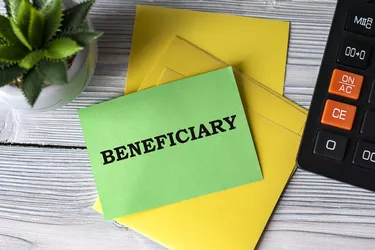
When you pass away without designating a beneficiary for your 401k, there are several factors that determine who receives your account funds. If you are married, your 401k will most likely pass to your spouse. If you are not married, the recipients of your account are determined either by the terms of your will or by your state's intestacy laws.
No Beneficiary
Video of the Day
If you are married at the time of your death, federal law provides that in most situations your 401k automatically passes to your spouse, regardless of whether you have designated a different beneficiary or no beneficiary at all. The law makes an exception if your spouse has signed a written waiver of his right to inherit your 401k. If you are not married when you die and you have not designated a beneficiary — or if your named beneficiary has predeceased you — your 401k becomes part of your estate. The ultimate recipients of your 401k funds are determined based on whether or not you die with a valid will.
Video of the Day
Will
When you leave behind a valid will, the terms of your will dictate how your 401k funds are distributed. Before your loved ones can receive your 401k assets, your will must go through the probate process. During probate, your 401k is combined with your other estate assets, and any final debts and taxes must be paid before your remaining assets are distributed to those named in your will. The length of the process varies by state, but probate generally lasts between nine months and two years.
No Will
Dying without a valid will means that you leave behind an "intestate estate." Your property, including your 401k, still must go through probate; however, your state's intestacy laws will determine who ultimately gets your property. State laws vary, but intestate property is usually divided among your closest surviving relatives.
Considerations
Failing to update your beneficiary designations can derail your estate plans. Make it a habit to review and update the beneficiaries of your 401k and your other investment accounts each time you update your other estate planning documents.